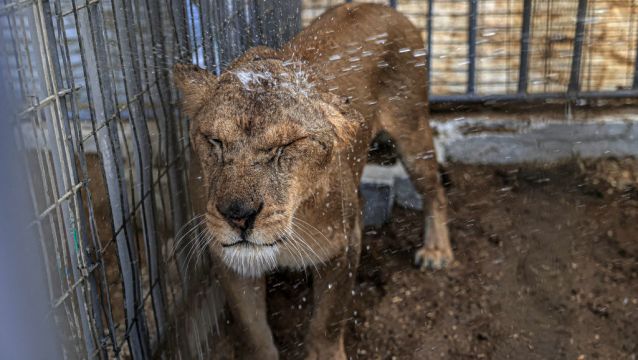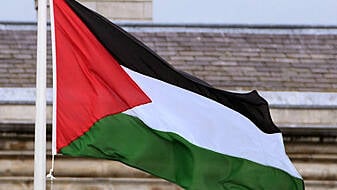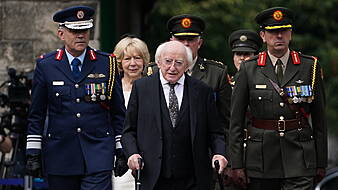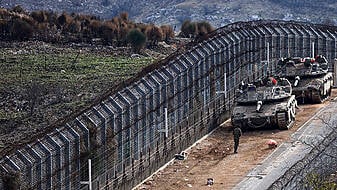In Rafah zoo, dozens of destitute Gazans are camping between the cages where starving monkeys, parrots and lions cry out for food 12 weeks into Israel's offensive.
Nearly all Gaza's 2.3 million people have been driven from their homes under a bombardment that has reduced much of the territory to rubble. Many now cram the southern city of Rafah, their shelters packing street corners and empty lots.
In the private zoo, run by the Gomaa family, a line of plastic tents stood near the animal pens and washing hung from lines between palm trees. Nearby, a worker tried to feed a weak monkey tomato slices by hand.
Many of those sheltering at the zoo are members of the extended Gomaa family who were living in different parts of the enclave before the conflict smashed their homes.
"There are many families who have been completely wiped out. Now all our family is staying in this zoo," said Adel Gomaa, who fled Gaza City. "Living among the animals is more merciful than what we get from the war planes in the sky."
Four monkeys have already died and a fifth is now so weak it cannot even feed itself when food is available, zoo owner Ahmed Gomaa said.
He also fears for his two lion cubs. "We feed them dry bread soaked in water just to keep them alive. The situation is tragic really."
The cubs' mother has lost half her weight since the conflict started, going from daily meals of chicken to weekly servings of bread, he added.
A UN-backed report last week warned that Gaza was at risk of famine with the entire population facing crisis levels of hunger. Israel stopped all food, medicine, power and fuel imports into Gaza at the start of the war.
Though it now permits aid to enter the enclave, security checks, delivery bottlenecks and the difficulty of moving through the rubble of a warzone have hindered supplies. Many Palestinians there say they do not eat every day.
At the zoo, the lioness and her cubs lay listlessly in their cage while children played nearby.
Animals were dying and falling ill every day, said Sofian Abdeen, a vet who has worked at the zoo. "Cases of starvation, weakness, anaemia. These problems are widespread. There is no food."







